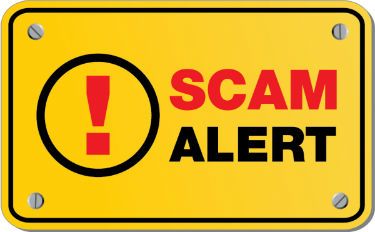How to Avoid Being Scammed By a Home Remodeling Contractor
To have your home damaged in a severe storm or hurricane is heartbreaking. But you have to move on, putting the traumatic experience behind you. You have to start weaving your life and home back together again. Here are some things you ought to do to right after the flood waters have receded:
- The first priority is to get all the standing water out of your home. The longer flood water remains inside your home, more extensive will be the damages.
- Put the carpets, the furniture, and large appliances out as they may take a long time to dry.
- Prepare a list of the damages done and start with the emergency repairs.
 However, repairing a flood-damaged home is not a minor DIY project that you can do on your own. You need to hire a home remodeling contractor to do the job. And that’s when you can be sure to come across scam artists.
However, repairing a flood-damaged home is not a minor DIY project that you can do on your own. You need to hire a home remodeling contractor to do the job. And that’s when you can be sure to come across scam artists.
If you’ve been struck by a disaster, you’ll find a number of contractors showing up at your doorsteps, promising to get down to business right away.
Many homeowners grab these deals thinking acting fast in such situations can prevent further problems such as mold infestation. Taking advantage of this, the rip-off contractors ask for a part of payment upfront and then disappear. This is why if you’re looking for a home remodeling contractor to fix your flood-ravaged home, you need to first know how to spot the genuine ones from those merely posing to be contractors.
Ways to Differentiate a Scammer From a Genuine Home Remodeling Contractor
- A shady contractor will provide credentials that you can’t verify.
- Contractors that offer you special prices, but only for ‘today’ should be avoided. They are simply trying to rush you into a decision which you will definitely regret.
- They will demand a large deposit or the whole cost of the project up front — and in cash. Even a genuine contractor might want some money in advance, but it should be only 10% of the cost, not more. Stay clear from a remodeling contractor who demands the whole or most of the project fee upfront – they will either disappear with it or use below standard materials. It’s best to pay for every stage of the renovation/remodeling that has been completed.
- A warning sign is when a contractor asks you to write checks in his name and not in the name of his business.
- Some contractors will offer a low price, which may seem lucrative. But you should remember, no one can do a good job at dirt cheap rates. Do some research and find out the average rate that contractors usually charge for remodel projects like yours. Don’t go for the low price scam, as the repairs won’t last.
- If a contractor refuses to give you a clearly written estimate, it’s a red flag. Most genuine contractors work with written estimate that contain the smallest expenses involved in the job (even the number of lights, for example). A contractor who doesn’t not provide a written estimate will ultimately charge you extra for these things, and then you will realize why he quoted the low price at first.
- Be clear about the extras, and keep an eye on what’s being done or else, you’ll end up spending way more than you had planned for.
- Never hire a contractor who say they can give you a low price because they don’t have a license and/or insurance.
A Genuine Home Remodeling Contractor Will Have
- A license, insurance, and a verifiable portfolio
- Experience in remodeling flooded homes
- A fair estimate, which they will provide you in written form
- A clear communication policy
Being able to recognize a fraud is the key to avoiding them. Plus, hiring the right contractor will make a world of difference to how soon you can rebuild your home and restore your lives after a disaster. Keep these tips in mind and stay away from rip-offs whose sole aim is to take advantage of your situation.



